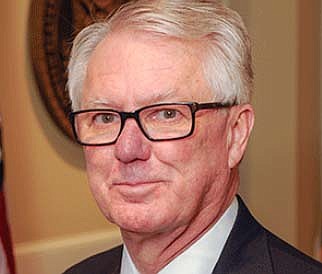Federal appeals court ruling sets precedent in 'unreasonable' search case
Jeremy M. Lazarus | 9/13/2019, 6 a.m.
Can police officers stop and search a random group of people found near a location where the officers believe gunshots have been fired?
And even if the shooter is not among them, can they arrest an uninvolved person who turns out to be carrying a gun illegally as the result of a felony record?
Yes to both questions, a divided three-judge panel of the 4th U.S. Circuit Court of Appeals decided last week in a precedent-setting Fourth Amendment case that grew out of an incident two years ago in Richmond’s crime-ridden Creighton Court.
The majority decision overturned a lower court’s decision to suppress evidence —the gun — that led to the arrest of Richmonder Billy Curry Jr., even though authorities confirmed he had not fired any of the gunshots.
In a vigorous dissent, Judge Henry F. Floyd of South Carolina wrote that the decision “completely cripples a fundamental Fourth Amendment protection and creates a dangerous precedent.”
In his view, the majority opinion means that the “sounds of gunshots, or even something that police perceive as gunshots, ... creates an emergency situation and allows police to stop and frisk anyone in the area without individualized suspicion.”
The case began Sept. 8, 2017, when four detectives from the Richmond Police Department’s Focus Mission Team heard gunfire within Creighton Court and responded to Walcott Place where it was believed the shots originated no more than 35 seconds earlier.
According to a recital of the facts, the detectives spotted and stopped six to eight men who, though clearly not together, were walking away from the area. The detectives asked the men to lift their shirts. The detectives shined flashlights on the men’s waists to determine if they had guns.
All complied and showed they did not have weapons, except Mr. Curry, who did not pull up his shirt. He turned out to have a weapon after he was wrestled to the ground and searched.
Writing for the appeals court majority, Judge Julius N. Richardson, also of South Carolina, found that the de- tectives were operating in an emergency circumstance affecting the public interest, thus triggering an exception to the U.S. Constitution’s Fourth Amendmentprohibitionagainst “unreasonable” government searches.
“The officers were not investigating a shooting that occurred days or even hours earlier,” he stated. “They were rushing to respond to shots fired just seconds earlier in a densely populated residential neighborhood” where there had been two homicides and six other shootings in the previous 90 days.
While Judge Richardson acknowledged that the officers did not have any “reasonable suspicion” that the men they stopped were involved in the gunfire, he found the primary purpose of the “stop and flashlight search was the need to protect the public and (themselves)” from a shooter and the potential for retaliatory gunfire.
“The officers reacted quickly ... with a measured response to address the very real threat of further violence,” he wrote in an opinion supported by Judge Paul V. Niemeyer of Maryland.
“An unobtrusive flashlight search” of the waistbands of those stopped to determine if they had weapons represented an “intrusion on the men’s liberty (that) was minimal both in scope and duration,” Judge Richardson concluded.
He addressed only the search of the group and left unsettled the question of whether the search of Mr. Curry was rea- sonable or violated the Fourth Amendment, which will require additional argument at the lower court. Mr. Curry, who has a lengthy criminal record, has been held without bond since his arrest.
But Judge Floyd argued his colleagues should have suppressed evidence of the gun, just as U.S. District Court Judge M. Hannah Lauck of Richmond did.
He wrote that none of the men the detectives stopped were known to have been involved in firing the shots.
Unlike cases where police set up roadblocks after a kidnapping or bank robbery or have a known suspect in a confined area, “the officers who stopped (Mr. Curry) had no such information.
“The officers approached (Mr.) Curry in an open field at one of several possible escape routes in an area they only suspected to be the scene of an unknown crime,” Judge Floyd continued, but the detec- tives were missing key pieces of information, including a description of the person who had fired the shots.
The detectives “had no reason to believe that the men (who were stopped) had any- thing to do with the gunshots (the detectives) heard,” he wrote. “The exigent circum- stances exception may permit suspicionless seizures when officers can narrow the seizures based on specific information on a known crime,” but he wrote that exception does not apply when that information is unavailable.
Judge Floyd stated that this view of the “exigent circumstances exception” has been the standard the 4th Circuit has previously followed and needs to maintain within its jurisdiction, which includes Virginia, West Virginia, Maryland and North and South Carolina.






